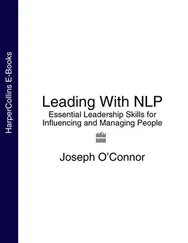John Gray - Children Are from Heaven - Positive Parenting Skills for Raising Cooperative, Confident, and Compassionate Children
Здесь есть возможность читать онлайн «John Gray - Children Are from Heaven - Positive Parenting Skills for Raising Cooperative, Confident, and Compassionate Children» весь текст электронной книги совершенно бесплатно (целиком полную версию без сокращений). В некоторых случаях можно слушать аудио, скачать через торрент в формате fb2 и присутствует краткое содержание. Год выпуска: 1999, ISBN: 1999, Издательство: HarperCollins e-books, Жанр: psy_childs, sci_pedagogy, Психология, на английском языке. Описание произведения, (предисловие) а так же отзывы посетителей доступны на портале библиотеки ЛибКат.
- Название:Children Are from Heaven: Positive Parenting Skills for Raising Cooperative, Confident, and Compassionate Children
- Автор:
- Издательство:HarperCollins e-books
- Жанр:
- Год:1999
- ISBN:978-0-06-133886-1
- Рейтинг книги:4 / 5. Голосов: 1
-
Избранное:Добавить в избранное
- Отзывы:
-
Ваша оценка:
- 80
- 1
- 2
- 3
- 4
- 5
Children Are from Heaven: Positive Parenting Skills for Raising Cooperative, Confident, and Compassionate Children: краткое содержание, описание и аннотация
Предлагаем к чтению аннотацию, описание, краткое содержание или предисловие (зависит от того, что написал сам автор книги «Children Are from Heaven: Positive Parenting Skills for Raising Cooperative, Confident, and Compassionate Children»). Если вы не нашли необходимую информацию о книге — напишите в комментариях, мы постараемся отыскать её.
Children Are from Heaven: Positive Parenting Skills for Raising Cooperative, Confident, and Compassionate Children — читать онлайн бесплатно полную книгу (весь текст) целиком
Ниже представлен текст книги, разбитый по страницам. Система сохранения места последней прочитанной страницы, позволяет с удобством читать онлайн бесплатно книгу «Children Are from Heaven: Positive Parenting Skills for Raising Cooperative, Confident, and Compassionate Children», без необходимости каждый раз заново искать на чём Вы остановились. Поставьте закладку, и сможете в любой момент перейти на страницу, на которой закончили чтение.
Интервал:
Закладка:
Positive parenting doesn’t punish, but it does
adjust privileges when it becomes necessary.
To be in control, parents need to know where their kids are, with whom they are spending time, what they are doing, and who is watching what they are doing. Yet teens often just don’t know where they are going. They want to get out, be together, and do whatever. If they are old enough to drive, then just driving around is enough for them to be happy. A parent wants to know where they will be and teenagers may really not know. With this problem, as with others, creative solutions can be found by making new rules.
If a teen is given permission just to go out with her friends, the new rule may be for her to call in at 10 P.M. or even to wear a pager. If the teen forgets to call or wear the pager, then the new freedom just to go out will be withdrawn until that child can remember to wear a pager or call in at a certain time.
Although teens resist these rules another part
of them is grateful that you are staying in
control and responsible.
For the next month, the teen is then required to know in advance where she is going, but she is also given the opportunity to practice calling home at 10 P.M. or wearing a pager.
Once she proves she can remember, then the freedom just to go out is given again.
As a teens earn trust, they should be given
greater freedom.
When a curfew is extended, some parents have their kids call in at certain times to talk to them and to make sure they are okay. It is helpful for teens to know their parents may call and talk to them at anytime. This is another deterrent against taking drugs or getting into trouble.
WHAT TO DO WHEN YOUR CHILD TAKES DRUGS
If children are caught taking drugs, or you have reason to believe they may be taking drugs, but deny it, then drug testing should be considered. Random drug testing has been very effective to ensure that your kids don’t take drugs. Any school counselor will teach you how to administer the test.
The peer pressure to take drugs is so great that the possibility of being caught by the test is an added deterrent. Being able to say that their parents may test them gives teens more support to say no to their peers about drugs.
It is never appropriate to ground a child for days, weeks, or months. The longer they are grounded, the more they turn off to wanting to cooperate. Instead of being the parent, you become the enemy. When dealing with difficult behavior problems, parents need to listen more and get their kids to talk. Instead of telling children why they are wrong, ask more probing questions like:
Why do you think I don’t want you to take drugs?
What do you think about that?
What is your experience of taking drugs?
What have you heard about the effects of drugs?
What do you think about it?
What do you think I could do to help you to not take drugs?
What more do you want from me?
Getting teens to talk helps them find out what they think. When kids get a chance to share their opinions, then they are more respecting of you. Even if a child’s opinion is different from the parent’s, a parent needs to be accepting, but still command a teen to do what the parent requires. At all ages, children will have different wants and, ultimately, when these are heard they are willing to follow your lead.
They may not like it, but they will cooperate.
DEALING WITH DISRESPECTFUL LANGUAGE
One mother asked how long her sixteen year old should be grounded for speaking abusively to her. The mother wanted to know if two weeks was fair. I instructed her just to give a time out the next time it happened. Since her teenager had not been raised with time outs and could only be controlled by punishment, the mother thought her daughter would just laugh at her.
Since the child was not accustomed to positive parenting at all, I suggested that she should give her daughter more time for the first few time outs. Instead of sixteen minutes, I suggested two hours. Her mother still thought her daughter would just laugh. She said, “Two hours is nothing compared to what she deserves.”
I reminded this mother that her daughter never deserved to be punished. As a parent, she felt that way only because she was raised that way and didn’t really know another way to control and teach her daughter correct behavior and manners.
Eventually, this mother was willing to give it a try, even though she was still convinced that her daughter would laugh at her.
I explained that the reason her daughter was so disrespectful was that she was out of control. To learn to express respectful behavior, her child just needed to come back into control. When given a time out, the child would have an opportunity to feel that she was being controlled.
To learn to express respectful behavior,
a teenager only needs to come back
into control.
The next time the mother got into a big argument with her daughter, instead of allowing it to escalate into something even more ugly, the mother wisely paused and simply said, “It is not okay for you to talk to me this way. I am your mother, and I want you to respect me. I want you to take a time out. I want you to go to your room for two hours. During that time, you can’t come out. In addition, during that two hours you can’t talk on the phone to your friends.”
The mother was surprised when her daughter reacted with outrage. The daughter said, “How dare you tell me what to do. I will not take a time out. You can’t tell me what to do. I hate you. You are a . . .”
The mother, unable to pick her daughter up and put her in a time out, just continued to command her daughter. She repeated her command a few more times. The daughter eventually went to her room, kicking the walls and screaming profanities with every step. When the girl tried to engage her mother in more arguing, the mother just repeated the command, “I want you to take a time out for two hours. During that time you are not allowed to use your phone.”
The mother was in a state of disbelief. She could not imagine that just a two-hour time out would bring up so much resistance. At the end of the two hours, her daughter came out and apologized for being so rude and mean to her mother.
Using a time out worked immediately in their family.
Once again, this approach worked so well because, the parent just needed to establish control so that the child could to feel their bond and connection. A parent doesn’t need to ground a child for days or weeks in order to establish control. When a child is grounded, a parent actually loses all control. For children today, punishments are counterproductive and actually weaken parents’ influence and control over their children and teens.
PERMISSION TO SPEAK FREELY
Around the age of twelve, my daughter Lauren started swearing occasionally. Each time, I would calmly ask her to use more polite language. One day she began to resist me. She replied that I sometimes used swear words — why couldn’t she?
I explained that as an adult I knew when and where to use them and that as a child she didn’t. She also didn’t know when such language was appropriate and when it was not. Before she would be free to use swear words, she would first have to learn to control herself and hold back until she could find the appropriate time and place.
At first she was very resistant. She said everyone else swore at school, and she should be able to as well. Feeling the new freedom of a preteen, she challenged me.
She said, “I don’t want to stop.”
I countered by simply making my request again. I told her, “I understand all the other kids use swear words, and it is not polite.”
Читать дальшеИнтервал:
Закладка:
Похожие книги на «Children Are from Heaven: Positive Parenting Skills for Raising Cooperative, Confident, and Compassionate Children»
Представляем Вашему вниманию похожие книги на «Children Are from Heaven: Positive Parenting Skills for Raising Cooperative, Confident, and Compassionate Children» списком для выбора. Мы отобрали схожую по названию и смыслу литературу в надежде предоставить читателям больше вариантов отыскать новые, интересные, ещё непрочитанные произведения.
Обсуждение, отзывы о книге «Children Are from Heaven: Positive Parenting Skills for Raising Cooperative, Confident, and Compassionate Children» и просто собственные мнения читателей. Оставьте ваши комментарии, напишите, что Вы думаете о произведении, его смысле или главных героях. Укажите что конкретно понравилось, а что нет, и почему Вы так считаете.












